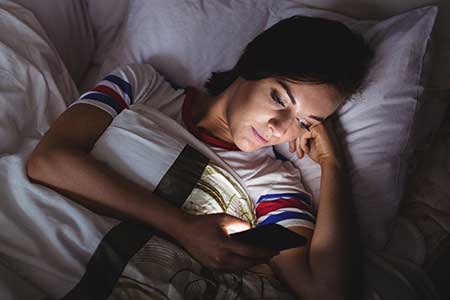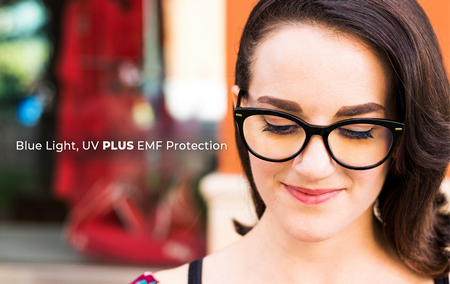What is Blue Light and How It Affects Our Eye Health?
Blue light isn’t some special light that only comes from computers screens, TV, LED lights or mobile phones – it’s actually all around us. In fact, sunlight is the main source of blue light we most likely exposed to every day. That means whenever you go outside during the daytime, you’re exposed to blue light.
The blue light emitted by the sun is the reason we see blue sky. It’s these light waves that reflected and bounced around the most by the Earth’s atmosphere.
What is Blue Light?
Blue light is a short-wavelength light generally is defined as visible light ranging from 380 to 500 nm (nm – nanometers) in the light spectrum, which is known as high-energy visible blue light (HEV). Blue light sometimes is further broken down into blue-violet light (roughly 380 to 450 nm) and blue-turquoise light (roughly 450 to 500 nm). The blue-violet light is the one you need to avoid.
Today, we are not just exposed to the natural blue light from the sun, but we are also exposed to the huge amounts of artificial sources of blue light on a daily basis from digital screens, such as computer screens, laptops, tablets, smartphones, TV and LED lights.
The fact that we spend most of our waking hours using screens and in close proximity has eye doctors and medical professionals worried about the effects of these artificial blue light.
Effects From Blue Light

It’s fair to say there is a growing concern about the effects that the amount of screen use is having on our eyes and health.
Blue light has also been singled out as more significantly disruptive to sleep than any other color on the light spectrum. It suppresses the release of melatonin, disrupts circadian rhythms, and may influence mood changes negatively. Circadian disruption produces serious effects including an increase in obesity and depression.
As a result of our long exposure to artificial blue light, we have eye fatigue, dry eyes, blurred vision, and even headaches. These are symptoms of digital eye strain. Prolonged exposure to artificial blue light has been found to damage the retina, the part of the eye that keeps objects in focus.
Recent studies also suggest that exposure to the blue end of the light spectrum over a sustained period can also contribute to long term vision issues such as cataracts, retinal damage and possibly lead to age-related macular degeneration (AMD).
Blue light is also considered a “carcinogenic pollution” that in mice correlates with higher cancer rates. A study links night exposure to blue light with breast and prostate cancer.
Reduce Blue Light Exposure

There are a couple of things that you can do to reduce your blue light exposure.
First of all, practice the 20-20-20 rule. Every 20 minutes, look 20 feet away for 20 seconds. This allows your eyes to rest and readjust.
For those of us that are not able to do that or tend to lose track of time 🙂 the best alternative would be to wear a pair of computer/blue light glasses. These glasses will help in reducing the amount of blue light entering our eyes by reflecting and/or absorbing the blue light from the digital screens.
Why Ezekiel-ion Glasses?

Ezekiel-ion glasses are simply the best blue light blocking glasses you can buy. With their near-clear lenses and the ability to block 60% of the most damaging blue light at 440 nm to 450 nm as identified by the American National Standards Institute (ANSI). 60% may not sound a lot, but the best glasses with near-clear lenses on the market right now is blocking 35%! All the extra blue light coating that the opticians trying to sell you when you buy prescription glasses, can block even less.
Many companies will tell you that their glasses block 90-100% of blue light. What they are really saying is that the lenses are blocking blue light wavelength at 410 nm and below. These are NOT the wavelength that will fry your eyes. There are some that will block 90% of blue light, but most people don’t want to walk around in glasses with yellow or orange lenses and we don’t expect you to either.
Protect your eyes from the harsh blue light properly. Protect with Ezekiel-ion.

